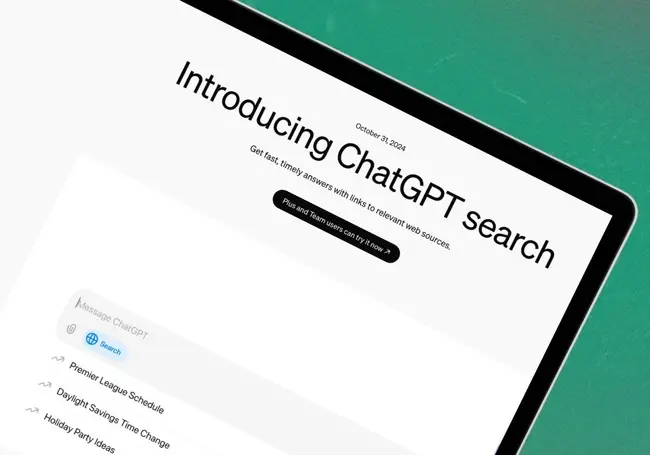OpenAI has finally launched ChatGPT Search, bringing the power of the web to the most well known and most popular AI chat bot there is.
This brings ChatGPT in line with other search engine enabled chat bots like Google’s Gemini.
OpenAI state that the new feature is ‘designed to get you a better answer. They envision the search function will be useful to reduce the amount of time spent researching and scanning the web for an answer.
Users are able to ask questions in a more natural language way as well as ask follow up questions that consider previously submitted context.
In this article we'll explain what ChatGPT search is and how to use it.

What is ChatGPT Search?
ChatGPT Search is a feature that allows users to search the web for answers to their questions from within the chat bot.
This means the large language model that powers the leading AI is no longer limited to its existing training data that cut off in October 2023. The information the model provides will now be more up to date, meaning you can ask about anything from the latest medical research to live sports scores to the weather.
When using the new ChatGPT Search the chat bot will also provide it’s online sources so you can verify the information it provides.
How to use ChatGPT Search?
ChatGPT Search is currently available to Plus and Team users, OpenAI’s paid memberships.
ChatGPT Plus, costs $20 per month and offers faster response times, prioritized access to new features, and general access to the advanced GPT-4 language model. ChatGPT Team, priced at $25 per user per month is tailored for teams and organizations, providing shared access for multiple users, centralized billing and management, and enhanced collaboration features.
1. Ensure you are logged into an account that has ChatGPT Plus or Team access.
2. Type your query into the chat box as normal.
3. Instead of searching as usual manually trigger the web search by clicking the globe icon under the text box. ChatGPT may automatically turn on web search if it believes it is necessary.
4. Review the response and check the citations.







Comments ( 0 )